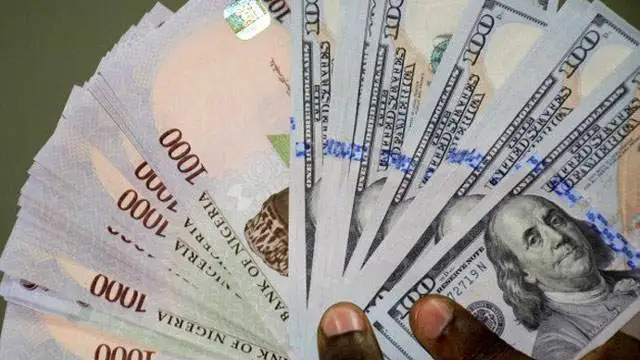Nigeria’s heavy indebtedness to International Development Association (IDA), now totaling $17.1 billion, has sparked concerns about the nation’s ability to utilise these funds effectively.
The challenges of project abandonment, corruption, and the persistent depreciation of the naira cast a shadow over the long-term benefits of these loans, posing significant risks to the country’s economic stability and debt sustainability.
While IDA loans offer concessional terms and are often directed toward critical infrastructure projects, their broader implications present troubling realities.
Former Vice President Atiku Abubakar criticized the government’s approach, stating, “Nigeria is sinking further into debt, and the National Assembly has become an accomplice once more. These loans are bone-crushing to Nigerians and bring insufferable pressure on the economy, especially when they are not properly negotiated and utilised.”
Abubakar highlighted concerns about corruption driving loan acquisition, emphasizing that development needs are often secondary.
Of particular concern is the exchange rate benchmark for these loans. According to Abubakar, “This loan proposal is benchmarked at the exchange rate of 1 USD to N800, whereas the current exchange rate from the Central Bank of Nigeria stands at over N1,600 to 1 USD.”
This significant disparity exacerbates repayment challenges and increases Nigeria’s financial vulnerability.
Bradley Rohrs, President of Rohrs Team, a U.S.-based real estate consulting firm, highlighted the economic risks posed by dollar-denominated loans.
He explained, “The loan needs to be paid back in Western currencies, and the naira is losing significant value every year. This loan is going to end up costing tens of billions of dollars to Nigeria within a decade.”
Rohrs underscored how currency depreciation effectively raises the loan’s real interest rate beyond its nominal 1 percent, further burdening the economy.
Nigeria’s external debt, particularly from the IDA, has surged dramatically, growing by $600 million in just three months to reach $17.1 billion as of September 2024.
The nation now ranks as the third-largest debtor to the IDA, following Bangladesh and Pakistan.
This dependency, according to experts, reflects a broader fiscal crisis, with external debt stock standing at $42.6 billion as of June 2024.
Of this, multilateral loans such as those from the IDA account for 50.4 percent, bilateral loans for 13.7 percent, and commercial loans like Eurobonds for 35.2 percent.
The depreciation of the naira is amplifying the burden of external debt. With projections suggesting an exchange rate of N1,400/$1 by 2025, Nigeria faces ballooning debt servicing costs.
This trend already consumes a disproportionate share of government revenue; in 2023, debt servicing amounted to N8.56 trillion—69 percent of total revenue. Such fiscal pressures leave little room for investment in critical sectors like health, education, and infrastructure.
One of the most glaring issues surrounding Nigeria’s borrowing is the mismanagement of funds.
Corruption frequently drives loan acquisition, undermining developmental objectives.
A 2024 report by Budgit, a budget transparency organization, revealed inefficiencies and questionable allocations in Nigeria’s budget, casting doubt on the effective utilization of borrowed funds.
Although IDA loans are often tied to specific projects and disbursed in stages based on performance milestones, poor execution and accountability undermine their potential.
This failure is evident in the alarming rate of project abandonment.
According to Henry Mbadiwe, Registrar of the Chartered Institute of Project Managers of Nigeria (CIPMN), “Abandoned projects in Nigeria stand at over N17 trillion today. Research has shown that the main causes are lack of articulated vision and objectives that multiple administrations can stand behind, poor project planning, and inadequate budgetary allocations.”
These systemic failures leave Nigeria burdened with debt but without the tangible infrastructure or economic growth required to offset it.
The misuse of loans for recurrent expenditures instead of transformative projects exacerbates this problem, diminishing public trust and reducing the long-term value of borrowed funds.
Nigeria’s debt-to-GDP ratio reached 42 percent in 2023, exceeding the Debt Management Office’s benchmark.
Projections indicate this ratio could climb to 51.5 percent by the end of 2024, surpassing the International Monetary Fund’s forecast of 46.5 percent.
While these figures may seem manageable by global standards, Nigeria’s low revenue-to-GDP ratio constrains its ability to service debts without further borrowing.
The 2025–2027 Medium-Term Expenditure Framework (MTEF) highlights a 2024 budget deficit of N9.7 trillion, necessitating additional loans. Without significant reforms to boost domestic revenue, stakeholders warn that Nigeria risks entering a debt trap, where borrowing becomes necessary to service existing obligations.
Pathways to Debt Sustainability
To mitigate the risks associated with foreign loans, experts recommend a multi-faceted approach: Reducing reliance on oil revenues by expanding sectors such as agriculture, manufacturing, and technology could provide more stable revenue streams; Strengthening tax collection mechanisms can boost government revenue and reduce the need for external borrowing; Transparent governance and accountability measures are crucial to ensuring borrowed funds are used for intended purposes; Sound macroeconomic policies, including reducing inflation and fostering investor confidence, are essential to shielding the economy from the exchange rate volatility.
Also, exploring alternative financing models, such as public-private partnerships (PPPs), could also reduce dependence on external loans while ensuring efficient project execution.
While IDA loans provide favourable terms, their benefits are contingent on prudent management and strategic utilisation. Nigeria’s increasing reliance on these loans, coupled with naira depreciation and systemic mismanagement, poses a serious threat to economic sovereignty.
Without immediate reforms to strengthen domestic revenue generation, enhance fiscal transparency, and curb corruption, the country risks mortgaging its future to service present-day debts.
READ ALSO: Nigerians downtrading as inflation, naira depreciation, fuel price worsen cost of living
Get real-time news updates from Tribune Online! Follow us on WhatsApp for breaking news, exclusive stories and interviews, and much more.
Join our WhatsApp Channel now
